
Senior Help: Ultimate Guide To Your Peace Of Mind
Call List Family Doctors Walk In Clinics Safety/Security
Welcome to today’s blog post! In which I’ll share with you useful information such as links and call list which can be beneficial to your health, well-being, and safety. Read this article on how to use our city’s emergency services. However, before we start, I’d like to point out that certain areas in your house may need a bit of attention. This information is of utmost importance and being included in this Seniors Help post as a precaution.
Some may say I’m fearmongering, but if we pretend nothing is wrong, these accidents will keep occurring in our own homes. Photos below show four familiar areas where accidents often occur. At our age, a hard fall could have devastating consequences. The government of Canada published an article that calls for proactive undertakings at your homes. Click here to read the article.
Most images featured on this site are generated by MidJourney AI based on prompts created by the site owner.
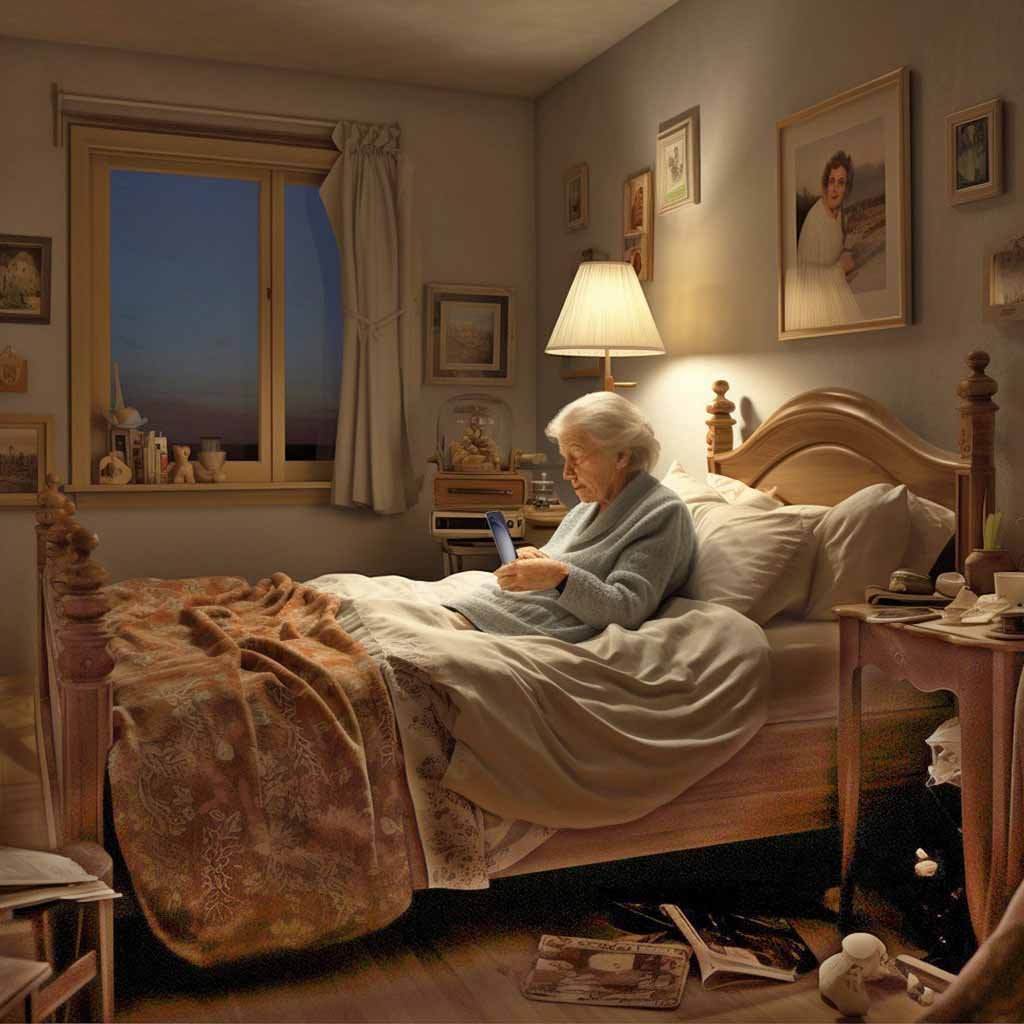

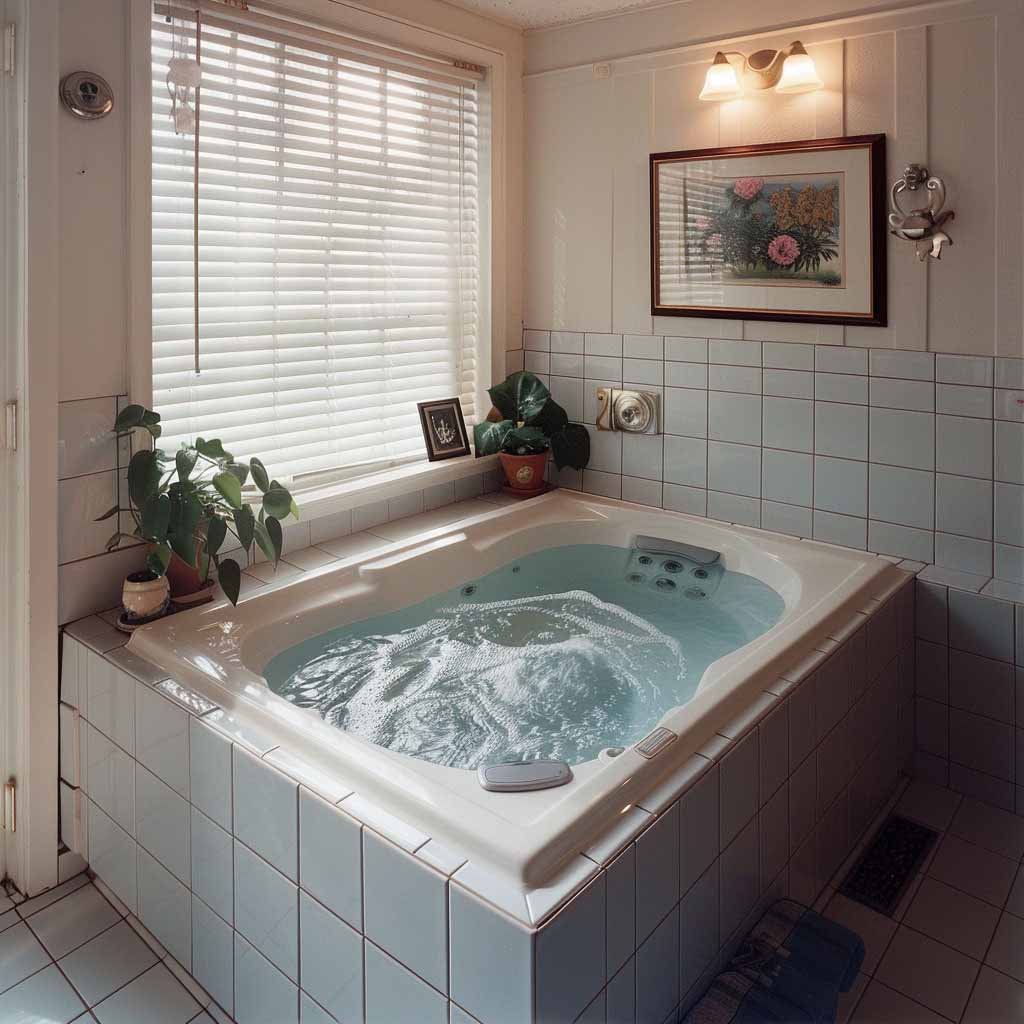
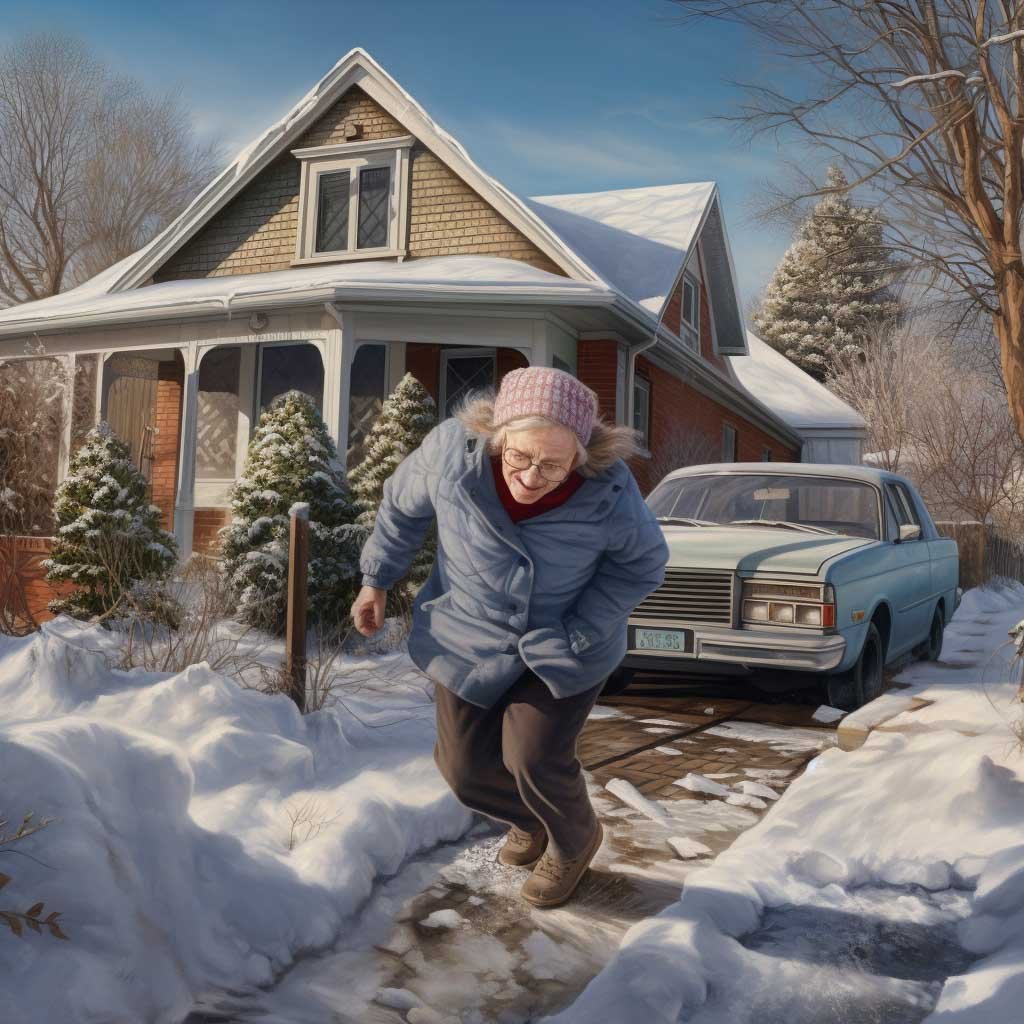
Take Extra Care In These Areas
Certain areas in our homes, including the bedroom, stairway, bathroom, and outdoor areas like the front walk, driveway, and steps, are particularly prone to accidents. Although incidents can occur anywhere, especially as we age, these specific areas are more hazardous. The risks aren’t due to unpredictability but rather the changes in our physical and mental conditions. Factors such as disorientation, dizziness, blackouts, loss of balance, vertigo, and instability can turn familiar places into potential dangers.
Bedroom:
Sleeping generally keeps us safe, but the risks increase when we need to get up at night. This could be to use the bathroom, adjust the heat, or because we can’t sleep. When we’re groggy, even small items on the floor—like a rug, shawl, or pieces of clothing—can become tripping hazards.
Unfortunately, many beds are too high for seniors. Ideally, beds should be between 16″ and 18″ off the floor, ensuring your feet touch the ground when getting out of bed. At night, we often don’t turn on the lights, which makes a cluttered floor even more dangerous. Adopting a minimalist lifestyle can help reduce clutter and the risks associated with it. Read our blog post: Cluttered Or Sparse.
Stairway:
For seniors, staircases ideally should be straight or U-shaped with a landing in the middle. And they need to be uniformly lit from above. Each step should be identical, with a depth of 11.5″ to 12″ and a height of 6.5″ to 7″. Handrails on both sides are necessary. Preferably, steps are to have a bull-nosed nosing that projects 1″ from the riser below. The steps should be covered in short-piled carpet or thick rubber flooring.
Unfortunately, many Toronto homes have narrow and steep stairs. Circular or curved stairs are even worse because the steps taper, making them difficult to navigate. If you have such stairs, consider installing a chair lift or replacing them outright. Ensure the stairwell is well-lit, and if budget and space allow, installing an elevator can be a safer option. However, keep in mind the costs and maintenance required of an elevator. How to design the ideal stair for seniors – read our blog post: Ideal House Plans.
–– Continued from above
Bathroom:
The bathroom is a particularly hazardous area due to its hard, smooth, and slippery surfaces. Often, there’s nothing to hold onto when dressing or undressing. High bathtubs can be difficult to access, requiring more effort and increasing the risk of falls. A dedicated shower stall with a slip-resistant floor is a safer alternative. If you prefer a bathtub, consider replacing it with a low-threshold tub, no higher than 14″ from the floor, or installing a walk-in tub.
Additionally, eliminate sharp edges and ensure all corners are rounded. It’s important to install grab bars, not just in the shower or bathtub but also in areas where balance is crucial, like when changing clothes. Consult an expert to ensure the grab bars are tailored to your needs and can support your full body weight. Bright, uniform lighting is essential to improve visibility, which is often inadequate in bathrooms.
Outdoor Areas : Walkway, Driveway & Steps:
For those of us living in Canada, slipping on snow is common, but as we age, such falls can be catastrophic. To prevent them, switch to winter footwear with effective ice grips as soon as the snow starts falling. Shovel snow and chip away ice from your walkway, driveway, and steps as soon as they appear. Additionally, sprinkle eco-friendly ice melt to reduce slipperiness. If the task is too strenuous, consider hiring help.
Another option is to invest in an automatic snow-melting system, which is highly effective at preventing falls. For smaller areas, embedded snow-melting electric heating cables offer a reasonably priced and easy-to-install solution. Finally, maintaining fitness is important: balancing exercises can significantly reduce the risk of falls. Johns Hopkins provides an excellent guide on exercises to improve balance and prevent falls in seniors. Click here to read article.
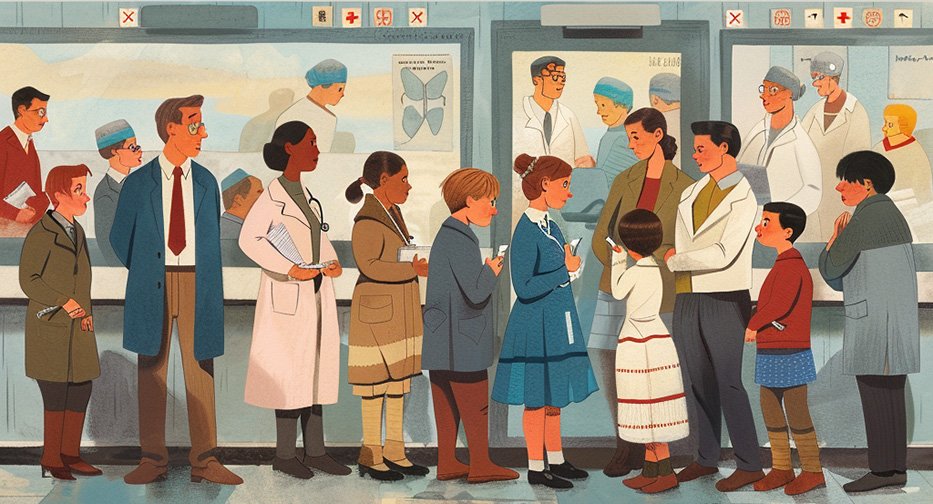
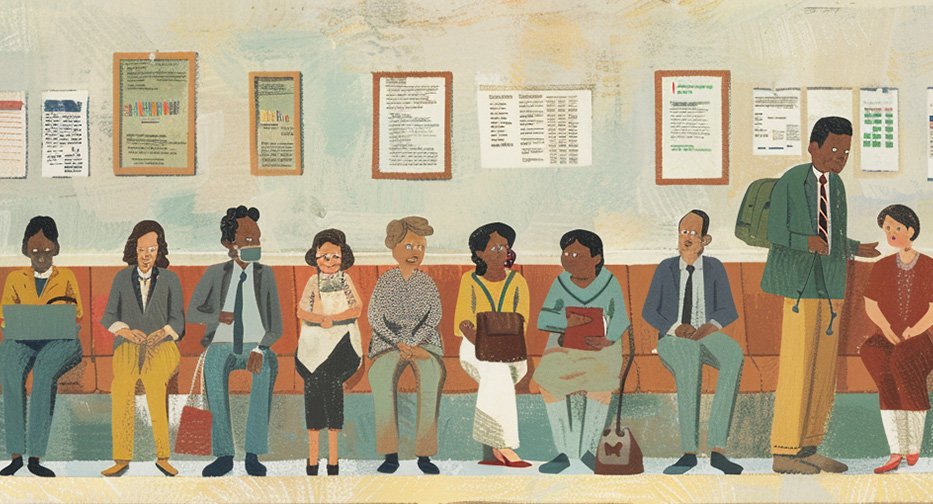
Family Doctor Crisis
Finding a family doctor in Toronto, especially for seniors whose long-time GPs have retired or stopped practicing, is increasingly challenging. Although the Ontario Health Insurance Plan (OHIP) provides coverage, the demand for healthcare providers often exceeds availability. To help you find a new family doctor, consider the following options.
Call List
Health Care Connect:
Health Care Connect is a program run by the Ontario government to assist residents without a family doctor. By registering with this service, you’ll be assigned a Care Connector who can help you find a doctor or nurse practitioner in your area. For more information, you can call 1-800-445-1822 or visit the Ontario Health Care Connect website.
Call 811:
You can connect with a registered nurse any time of day or night for free, secure, and confidential health advice. If you’re searching for a family doctor, the nurse might be able to assist you in finding one.
Walk-in Clinics and Telemedicine:
While walk-in clinics are not a replacement for a regular GP, they can address non-emergency medical issues. Additionally, telemedicine and online medical services are becoming more available and offer a convenient option for seniors. Search Google for walk-in clinics and telehealth near you and get the reviews. Be mindful that some of these online and telehealth (telemedicine) services are not free. Always ask for the prices first.
University Health Networks:
If you live near a university with a medical school, such as the University of Toronto, check if they have associated health clinics. These clinics often have family practice teaching units that may accept new patients.
Referrals and Networks:
Don’t hesitate to ask friends, family, or other healthcare providers for referrals. Sometimes, new opportunities to join a practice arise through word-of-mouth.
Community Health Centres (CHCs):
CHCs provide a range of services, including primary healthcare, and might be accepting new patients. They are an excellent resource for comprehensive healthcare, especially for those living on a low income, new immigrants, individuals with complex mental health issues, or those without health insurance. Click here for their website.
Family Doctors Clinics:
New clinics have a better chance of accepting new patients. Make a list of the new clinics with good reviews on Google and call them directly. See if they are accepting new patients. You may try the search phrase on Google : “new family doctor clinics Toronto”. You’ll see them on the map.
Nurse Practitioner Clinics:
Nurse practitioners are allowed by law to diagnose, provide prescriptions and make referrals to specialists. Look up online for nurse practitioner clinics and do your own research. Ask for prices first.
Walk-In Clinics
Walk-in clinics serve as a temporary solution for immediate health concerns. While they offer a backup option, it’s important to remember that you won’t see the same doctor every time and they won’t keep your file. The situation is challenging, and finding a new family doctor in Toronto may require patience. However, these steps laid out above can increase your chances. In Google Search, type in Walk In Clinics Near Me and choose one according to rating.
Some walk-in clinics in Toronto also have family doctors practicing on-site. They might have a waiting list for patients seeking a GP. In some cases, patients have successfully connected with new GPs through this route.
Stay informed about changes and developments within local healthcare facilities, as new options for securing a family doctor can arise unexpectedly. We will continue to update this Seniors Help section with new information on this topic as it becomes available.
The Minefield of Accessing
Public Health in Ontario
My family doctor currently requires a minimum one-month wait for non-urgent appointments. In the meantime, the receptionist frequently reminds me to visit the emergency room of a hospital if necessary. As an alternative, I visited my neighborhood walk-in clinic for minor ailments. Luckily, they eventually improved. However, I didn’t report my visit to my family doctor. While this worked for me, other Canadians have faced issues doing the same—they were “de-rostered.”
CTV explains that “de-rostering” affects patients whose doctors are part of a Family Health Organization or Network. These doctors receive compensation through a mix of fee-for-service and pay per patient. If a patient seeks care outside the network, the ministry deducts that cost from the doctor’s potential bonus payment.
Ask Your Doctor If You Are Allowed to Visit A Walk In Clinic.
Since my family doctor operates a solo practice, visiting a walk-in clinic doesn’t affect him. However, it’s important to notify your previous family physician if you permanently switch to another doctor. The receptionist at your old doctor’s office might require a note from the new doctor’s office to confirm the switch. The process is often confusing and not well-organized.
If you have any concerns with your doctor, the CTV program from May 6, 2024, provides a viewers’ feedback email that you can contact for assistance. Click here for the link.
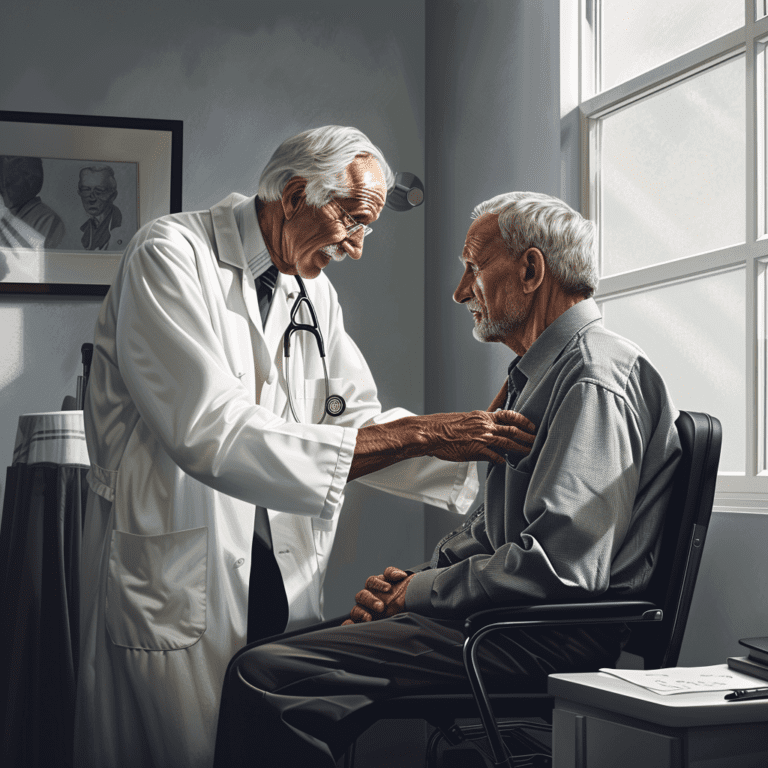
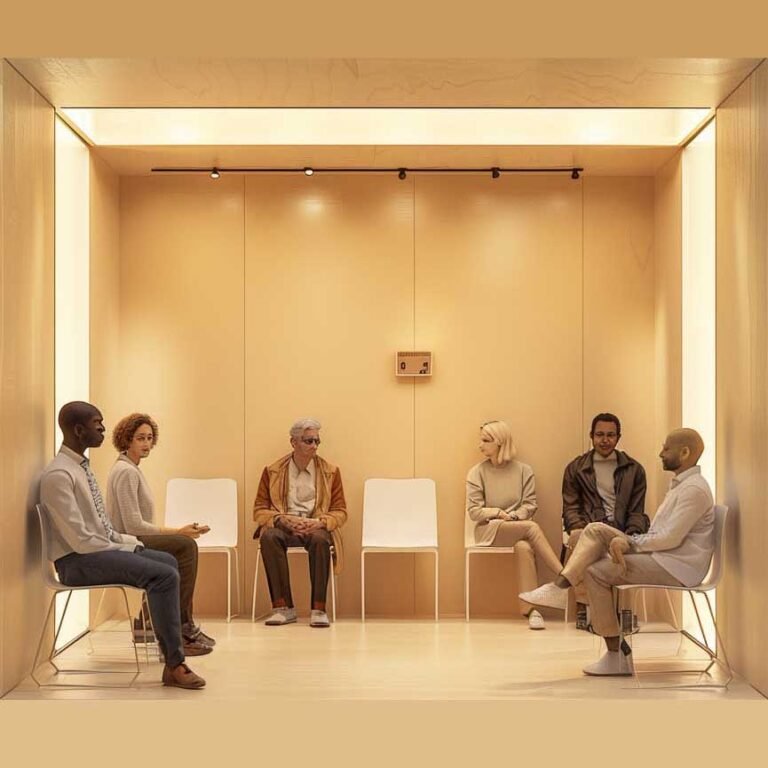
Seniors Help –
Call List
Staying Connected and Supported While Living at Home – Living in your own home doesn’t mean you are isolated or helpless. There are plenty of people and resources available to help when you need it:
Relatives, Friends, and Neighbors:
Keep the phone numbers of your relatives, friends, and neighbors handy. They are essential contacts who can respond quickly in an emergency.
Religious Organizations:
If you belong to a religious group, reach out to them. They often provide support in times of need.
Emergency Contacts:
Make sure 911 and local emergency help lines are easily accessible. Keep this information at your fingertips for quick access.
City of Toronto Services:
In Toronto, as in many major cities across Canada and the U.S., government services are available to assist seniors. According to the City of Toronto website, “There are many services available to help seniors access food and essentials, get health and personal care in their homes, get mental health supports, and more.” You can call the Toronto Seniors Helpline at 416-217-2077 or 1-877-621-2077 (long-distance). The helpline operates Monday to Friday from 9 AM to 8 PM, and on weekends and statutory holidays from 10 AM to 6 PM. Additionally, you can access their services via web chat.
Call List Cont’d
NextDoor:
NextDoor is a global platform that connects people within their neighborhoods to share local news, information, and assistance. Consider becoming a member of NextDoor ca.nextdoor.com. Members are typically friendly and helpful, and while there are ads, the community support can be invaluable. Ask the chat groups about doctors accepting new patients.
Local Representatives and Police:
It’s important to know who your local city councillor is. Find out your ward number and keep the councillor’s name, phone number, and email address handy. When you need assistance, their office can often help, even if the councillor isn’t immediately available.
Additionally, familiarize yourself with the location of your nearest police station. If you have concerns about crime or safety in your neighborhood, visit the station and request to speak with the unit commander. Express your concerns directly to them.
Home and Community Care Support Service:
The Home and Community Care Support Service of Canada (https://healthcareathome.ca/) primarily focuses on healthcare services. However, they can sometimes provide information about local home maintenance services for seniors.
Ontario 211 Services:
Call 211, a non-profit helpline in Toronto that connects people to the social services, programs, and community supports they need. This service is an excellent resource for finding help in your area.
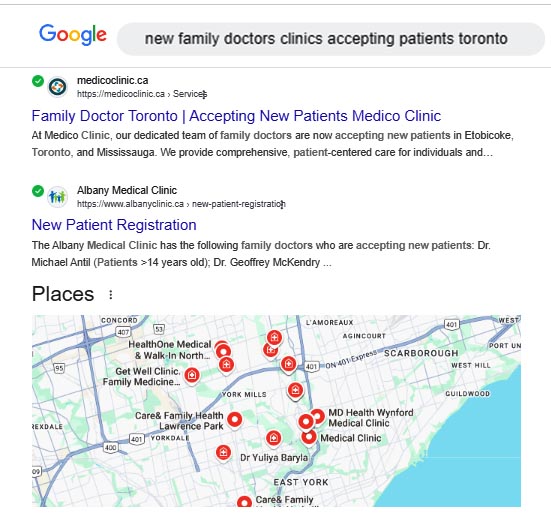
– Continued from above
More Seniors Help – Call List
United Way Family Service Toronto
The Seniors and Caregivers Support Service (SCSS) Unit at Family Service Toronto provides essential social work services to older adults and caregivers. Their services include counseling, group work, advocacy, training, and educational sessions on various topics such as aging and memory loss, anger and guilt, accessing community resources, and preventing the abuse of older adults. For more information, visit their website: Family Service Toronto.
Toronto Memory Program
If you’re curious about the state of your memory, consider reaching out to the Toronto Memory Program. They offer memory tests and consultations to detect the early onset of Alzheimer’s and dementia. If you notice any signs of memory loss, specialist doctors are available, but you’ll need a referral from your family doctor. Don’t forget to bring your Ontario health card to your appointment.
Improving Your Living Environment
For those looking to make their living space more dementia-friendly, an excellent UK blog suggests 10 ways to improve your environment. Click here to read the blog and gain some valuable insights.
Alzheimer’s Society Toronto
Alzheimer’s Society Toronto serves as a local support organization for individuals affected by Alzheimer’s and dementia. To access their resources and support services, click here.
City of Toronto Senior Programs
The City of Toronto offers several programs and services for seniors, including homemaking assistance for those who are unable to perform household activities due to limited income and health. For more details, email them at ltc-comm@toronto.ca or call 416-392-8579.
Baycrest Centre
Toronto is also home to the world-renowned Baycrest Centre, a leader in geriatric research and care. Baycrest hosts Canada’s largest dementia research initiative, the Canadian Consortium on Neurodegeneration in Aging (CCNA). They have recently launched an innovative online program called Brain Health PRO (BHPro), which offers older adults the opportunity to enhance their knowledge of dementia, improve lifestyle risk factors, and engage with researchers. This program features interactive digital educational modules designed to empower seniors to improve their physical and mental health. For more information, visit their website: Baycrest. Be sure to discuss these resources with your doctor and health practitioners.
Staying Updated
Please note that websites and services may change over time. Responsible organizations typically provide a forwarding number or URL where they can be reached. Always search the web for the most up-to-date assistance in your area. We will continue to update this Seniors Help blog post with current information as it becomes available.
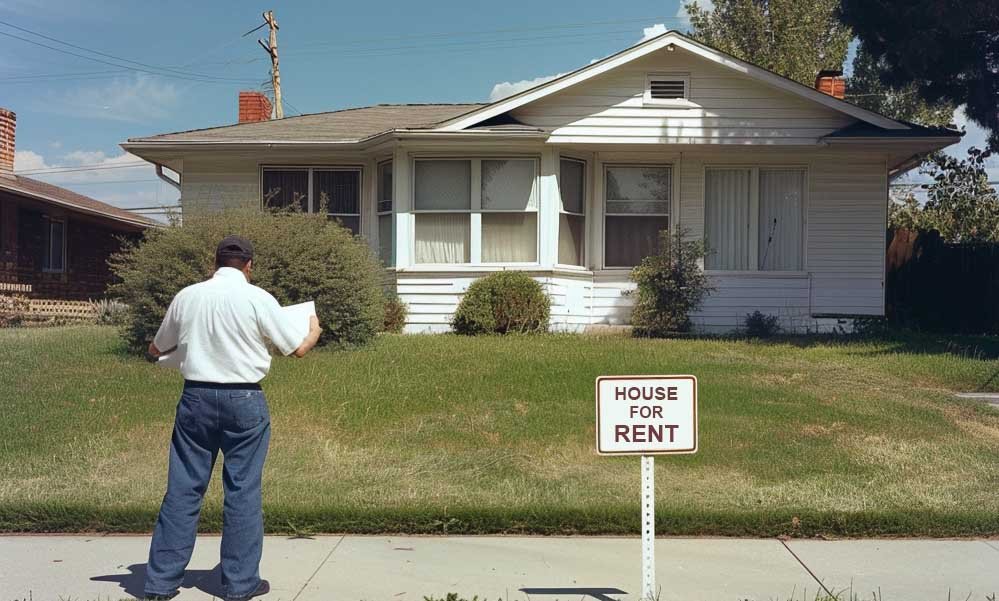
Protect Our Properties:
Title fraud is a growing concern that can lead to the transfer of your property’s title into the hands of criminals, allowing them to sell your property without your knowledge. To protect yourself, consider registering with Onland (Ontario Land Registry Access) online. For a fee of $36 (as of April 2024), Onland allows you to perform a property search, with the results conveniently emailed to you for easy printing.
Additionally, ensure you have title insurance on your property. If you don’t have it, you can obtain title insurance from your bank or lawyer. For our bungalow, the one-time fee was $750 (as of April 2010)—a relatively small investment to ensure you are financially covered in case of title fraud. We highlight this in Seniors Help because title fraud is becoming increasingly prevalent.
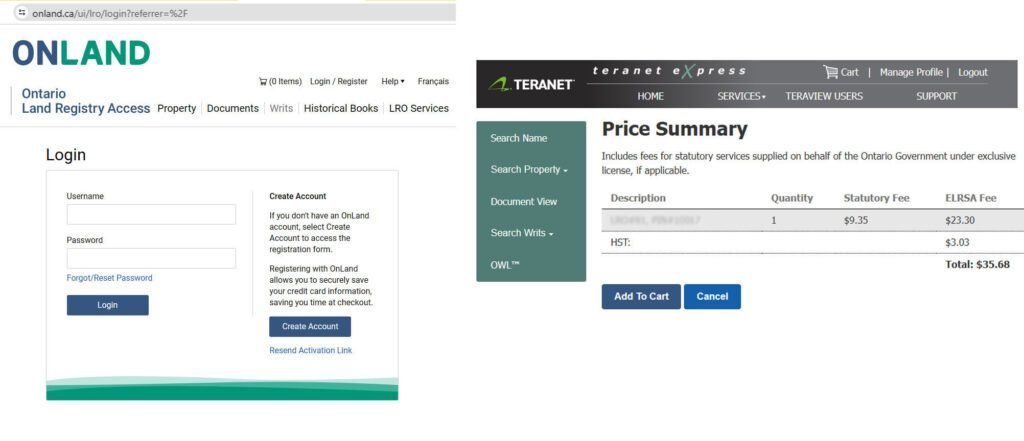


Cybersecurity & How To Protect Yourselves From Scams
– More Seniors Help :
Download this Senior Scam Guide by the US Attorney General to stay informed about common scams targeting seniors. As scams become more sophisticated, it’s essential to be extra cautious when dealing with anything that involves your money, credentials, phone numbers, addresses, or personal information. Unfortunately, we must now follow the old adage, “Never Trust A Stranger.”
In a future post titled “Technology,” we will explore how new technology can help protect against scams, and discuss the latest trends in cybercrime and cybersecurity. This goes beyond early morning phone calls claiming your grandchild is in trouble. We will continue to update this Seniors Help blog post with the latest information and will highlight updates in green.
Click Here For HomePage
Go to our homepage and read about this website and get links to other pages. This is the most comprehensive site on the most preferred senior lifestyle.
Disclaimer
The information provided on this website, including but not limited to suggestions related to home safety, lightening personal possessions, and house maintenance, is for general informational purposes only. While we strive to provide accurate and up-to-date content, we make no representations or warranties of any kind, express or implied, regarding the accuracy, completeness, or suitability of the information provided. Any reliance you place on such information is strictly at your own risk.
By using this website, you agree that:
- You are solely responsible for ensuring the safety of your home environment. Our recommendations are provided as general suggestions, and we encourage you to consult with qualified professionals (e.g., electricians, contractors, or security specialists) before undertaking any actions or making changes that may impact the safety or structure of your home.
- Any guidance on organizing or reducing personal possessions is based on general principles. Individual circumstances may vary, and we recommend seeking the advice of professional organizers or counselors if needed. We are not responsible for any unintended outcomes from following such advice, including emotional or psychological impacts.
- You should perform routine house maintenance only to the extent you feel competent to do so. For any tasks beyond your skill level, we strongly advise hiring qualified tradespeople. We are not liable for any injuries, property damage, or other issues that may arise from attempting suggested tasks.
- The website does not assume responsibility for any loss, damage, or liability that may occur as a result of using the information provided, and we are not liable for any errors or omissions in the content.
In no event will we be held liable for any loss or damage, including without limitation, indirect or consequential loss or damage, arising out of or in connection with the use of this website or the information contained herein.
Please consult with professionals where necessary and take personal responsibility for the actions you choose to implement in your home.